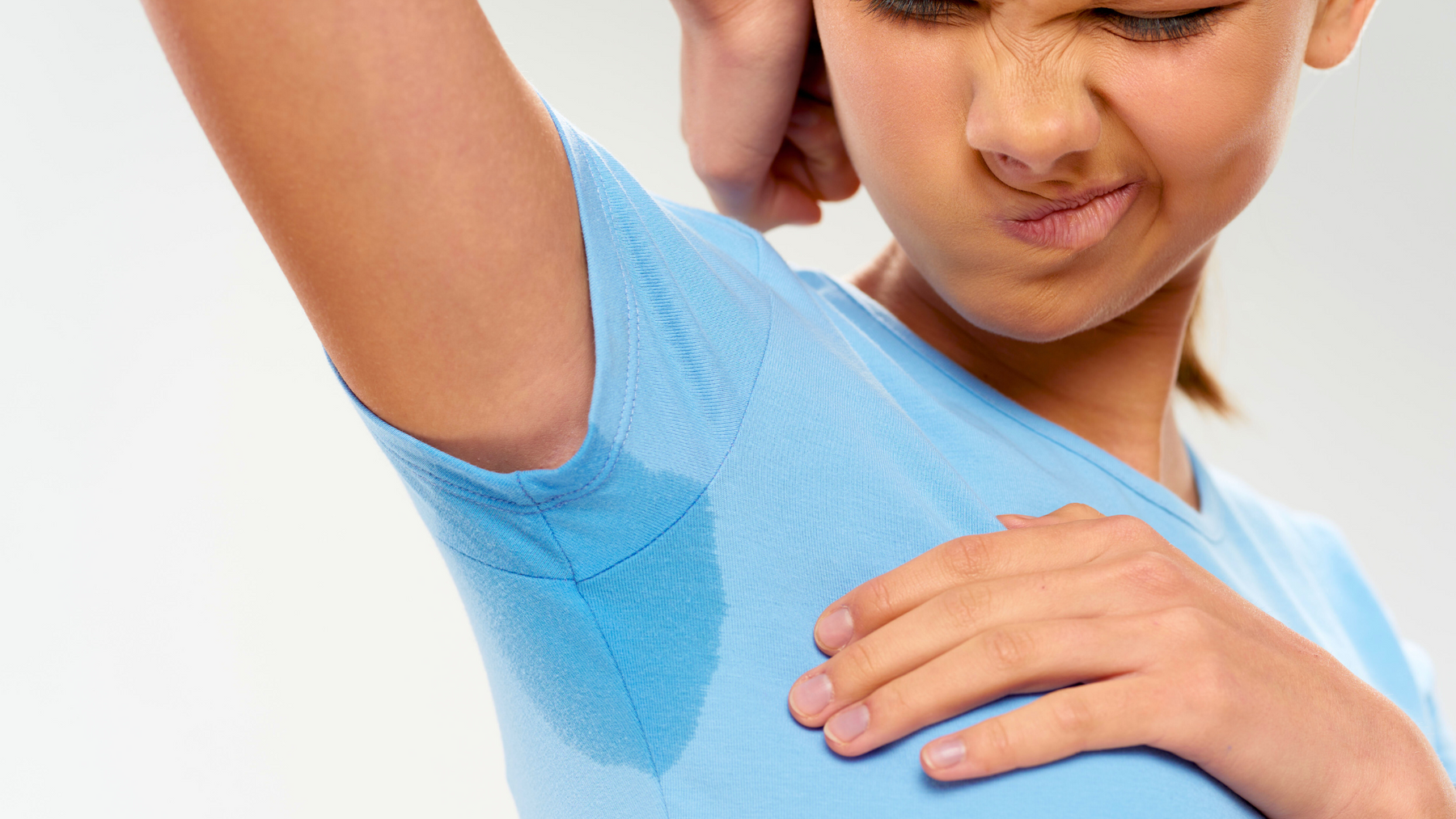
Excessive Sweating: Causes, Treatments & Remedies
Sweating is something that everyone does - it’s a natural process to regulate body temperature. But for some people, excessive sweating, or hyperhidrosis, can become a real issue, causing discomfort, embarrassment, and even anxiety. If you feel like you're sweating more than the average person, read on to find out more about why this happens and what you can do about it.
Why Do You Sweat?
Sweating is your body's way of cooling itself down. It happens whenever your body temperature rises, whether from exercise, hot weather, or even emotional stress. Your body has millions of sweat glands that release moisture, which then evaporates to cool you down.
Different people sweat to varying degrees. Some may sweat a lot during physical activity, while others may barely break a sweat, even during intense exercise. Men tend to sweat more than women, and the amount you sweat can depend on the demands placed on your body. For example, if you’re working outdoors in the heat or doing manual labour, you’ll sweat more than if you’re working in an air-conditioned office.
Factors like soaring temperatures, exercise, anxiety, hormonal changes, or spicy foods can increase sweating. However, if you find yourself sweating excessively even when you're not hot, stressed, or active, you could be experiencing hyperhidrosis.
What is Hyperhidrosis?
Hyperhidrosis is a condition where the body sweats far more than necessary. It often occurs in specific areas such as the hands, feet, or underarms, but can affect other parts of the body too. If you’re sweating while sitting at your desk or during moments of calm, even when you’re not exercising or feeling stressed, it might be hyperhidrosis.
This condition can be particularly embarrassing, but the good news is that it’s not life-threatening, and there are treatments available to help manage excessive sweating.
What Causes Hyperhidrosis?
Hyperhidrosis can be caused by various underlying conditions, including:
- Fever or infection
- Anxiety or stress
- Menopause or hormonal imbalances
- Thyroid problems
- Obesity
- Certain medications
- Cancer
In some cases, excessive sweating can be idiopathic, meaning it occurs without any underlying medical condition.
Conventional Treatments for Hyperhidrosis
Many people dealing with excessive sweating turn to stronger anti-perspirants. While these might seem effective, they can lead to skin irritation or rashes. If stronger products don’t work, it’s important to address the root causes of the issue rather than just masking the symptoms.
Here are a few conventional treatments for hyperhidrosis:
-
Iontophoresis: This involves soaking your hands or feet in water while a low electrical current is applied to block sweat production. It’s usually done multiple times a week, either by a dermatologist or at home.
-
Botox: Injections of botulinum toxin can temporarily block the sweat glands in areas like the underarms or hands.
-
Anticholinergic Medications: These prescription drugs prevent the sweat glands from working, though they can have side effects like heart palpitations and blurred vision.
- Surgery: In severe cases, surgery may be needed to cut nerves responsible for activating sweat glands. However, this comes with risks like scarring and compensatory sweating in other areas.
Natural Remedies for Excessive Sweating
If you prefer a more natural approach, there are several remedies to help control sweating and stay dry throughout the day.
-
Use Natural Deodorants: Instead of chemical-laden antiperspirants, choose natural deodorants like Jamie Deodorant from Feelgood Health. These products are eco-friendly and safe for your skin.
-
Stay Hydrated: Drinking plenty of water helps to regulate your body temperature and prevents excessive sweating. Avoid hot drinks like coffee, which can trigger sweating.
-
Wear the Right Clothes: Opt for natural fibres like cotton, linen, and wool. These fabrics are breathable and allow your skin to breathe, reducing sweat. Loose-fitting clothing is also best to allow air circulation.
-
Manage Stress and Anxiety: Stress and anxiety can trigger excessive sweating. Find ways to relax and stay calm. Deep breathing exercises, yoga, and mindfulness can help reduce stress. Natural remedies like MindSoothe can help manage anxiety and stress, reducing sweat.
-
Adjust Your Diet: Spicy foods and caffeine can stimulate your sweat glands. Avoid these triggers if you want to keep your sweat levels in check.
-
Hormonal and Menopausal Relief: If excessive sweating is related to hormonal changes, especially during menopause, natural remedies like Don Quai and MellowPause can help restore hormonal balance and reduce sweating.
-
Homeopathic Remedies: Homeopathy offers natural options to manage hyperhidrosis. SweatLess from Feelgood Health is specially formulated to reduce excessive sweating and balance your body’s fluid levels. For added benefits, try pairing it with MindSoothe for stress relief.
- Detoxification: Herbal remedies like Detox Drops help eliminate toxins from your body, which can reduce excessive sweating and body odour. A healthy system can function more efficiently, reducing the need for excess sweat production.
Conclusion
If you're sweating excessively, don't worry - it's a common condition, and there are plenty of ways to manage it. Whether you opt for medical treatments or natural remedies, you can find a solution that works for you. Keep cool, stay comfortable, and don’t let sweating control your life.
Featured Products:
Related Articles
- Detox Naturally: 6 Tips for a Full-Body Cleanse
- Reduce Symptoms of Menopause with Tissue Salts
- Summer-Ready: Natural Weight-Loss Remedies
If you have any question, please contact us or leave a comment below for FREE health advice. We always love hearing from you


Comments
Leave a comment